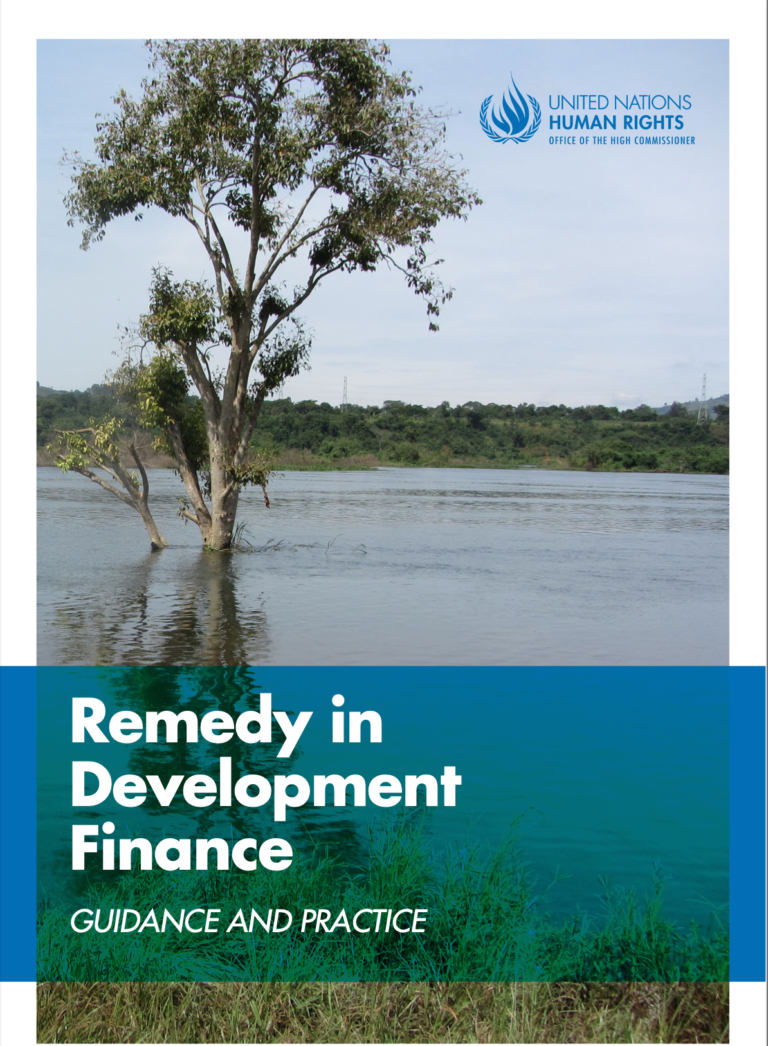Bilateral and multilateral development finance institutions (DFIs) are critical actors in development and, through financing, technical assistance and their normative roles, make important contributions to the Sustainable Development Goals and human rights. Most DFIs are explicitly mandated to support sustainable development, poverty reduction and avoid harming people and the environment. Clients are primarily responsible for project implementation, including remedying adverse environmental and social impacts. However, DFIs have a range of mechanisms, including environmental and social safeguard policies and independent accountability mechanisms (IAMs), to promote sustainable impacts, improve feedback loops, address grievances and avoid social and environmental harms. Many DFIs provide technical assistance and capacity-building to clients in these areas.

